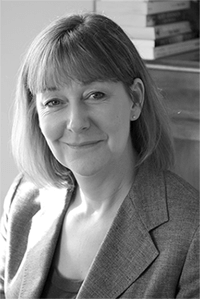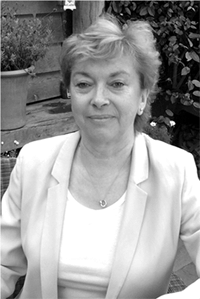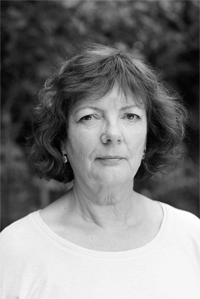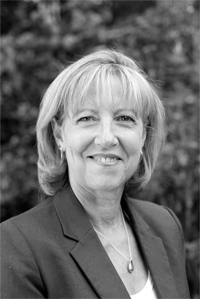![]() We are a group of expert, highly specialist clinicians. Each of us has over 20 years’ experience in treating people with eating disorders within the NHS and the private sector.
We are a group of expert, highly specialist clinicians. Each of us has over 20 years’ experience in treating people with eating disorders within the NHS and the private sector.
Having worked within multi-disciplinary teams in various eating disorder units, over time we have developed a collaborative way of working together in outpatients that relies on excellent and regular communication. We believe this makes us unique in outpatient private practice. We hold regular reviews with our patients to ensure all professionals involved in each patient's care are kept up-to-date and fully informed of their progress.
Our joint way of working leads to a greater sense of containment for our patients and, together with our specialist skills and experience, provides a very good chance of achieving a successful outcome.
Our model is based on the latest research and is carefully considered and tailored to meet each individual's particular needs. Although everyone we see has an eating disorder, their individual needs differ widely.
![]() We provide a comprehensive outpatient programme for our patients, carefully tailored for each individual.
We provide a comprehensive outpatient programme for our patients, carefully tailored for each individual.
![]() Where required we liaise with other colleagues experienced in eating disorders with additional skills, e.g. CBT, DBT, family therapy, group therapy, and appropriate specialist medical practitioners.
Where required we liaise with other colleagues experienced in eating disorders with additional skills, e.g. CBT, DBT, family therapy, group therapy, and appropriate specialist medical practitioners.
![]() As part of our service we provide support for parents, families and carers, including practical advice for coping with meals and eating at home.
As part of our service we provide support for parents, families and carers, including practical advice for coping with meals and eating at home.
![]() We carry out regular reviews with our patients.
We carry out regular reviews with our patients.
Our service is not required to be registered with the CQC as all our practitioners work independently and are registered with their appropriate professional bodies (see Team section for details).
Eating disorders can affect people of all ages and backgrounds, men, women, girls and boys. They become very concerned with controlling their food and weight, usually seeing this as the most important way to feel in control of their life. They may severely restrict their food intake or overeat excessively, sometimes swinging from one extreme to the other. They may use exercise excessively, take laxatives or diet pills or start to vomit after eating to promote weight loss or stop weight gain. Frequently the person intensely dislikes their physical appearance, and develops mixed feelings of confusion, shame, insecurity and anxiety. This can develop further into depression and self-hatred.
The causes of eating disorders are complex, a mixture of biological, psychological and socio-cultural factors. Some of these make an individual more vulnerable to developing an eating disorder, whilst others act as a trigger or help keep the illness going.
It's always very important when someone enters treatment with us that we take time to understand in detail which factors are relevant for them and how they interact - each individual we see is different. One of the symptoms of having an eating disorder is denial of illness, which is often very strongly felt, and can prevent someone from readily accepting treatment. We know that recovery can be a struggle, but starting treatment without delay does lead to the best outcome.
The first step in seeking treatment is to book an assessment consultation with one of our specialist consultant psychiatrists, Dr Adrienne Key or Dr Barbara Rooney.
Once established in treatment with one of our specialist psychotherapists and with a dietitian, the treatment programme involves establishing a regular balanced food intake and eating pattern alongside a supportive and thoughtful exploration of emotional experiences, conflicts and difficulties. Carrying out psychological and dietetic support in tandem is crucial in tackling these illnesses effectively. Eating disorders can lead to physical complications that may be life-threatening or cause the development of clinical depression and anxiety, so it's important to assess and monitor both physical and emotional wellbeing at assessment and throughout treatment.
We understand that the levels of distress involved are often very severe, both to the individual concerned and to their family. We offer a wide-ranging programme of support to address this, including practical advice for providing meals and eating with the patient at home, as well as coping with the inevitable conflict in close relationships that eating disorders generate.

Dr. Adrienne Key
Dr Key completed her higher training in psychiatry at St George’s Hospital medical school in London before developing an interest in eating disorders. The internationally renowned St Georges Eating Disorder Service, originally set up by Professor Arthur Crisp, provided a rich academic and clinical environment for her to train in both adult and child & adolescent eating disorders under Professor Hubert Lacey and Professor Bryan Lask. She became Senior Lecturer at the medical school and Consultant Psychiatrist within the service for several years publishing widely on a number of subjects including body image treatment and the impact of anorexia nervosa on fertility and brain function.
In 2005 she left the NHS to transition into private practice and become the lead consultant at the Priory Roehampton eating disorder service and then Medical Director for Eating Disorders to the Priory Group.
Over the last 10 years she has been a very active member of the Royal College of Psychiatrists Faculty Of Eating Disorders, helping establish the speciality in terms of training standards, resources and treatment guidelines, firstly as secretary to the Special Interest Group and then as a member of the executive committee to the Eating Disorder Section. She has continued to act as medical advisor to a number of organisations including giving evidence to the All Party Parliamentary group on Body Image, as a panel member to the Model Health Inquiry (MHI) and as an expert opinion within the media.
Her passion has always been working as a clinician and since 2013 Dr Key has focused on developing an independent highly specialist outpatient service with a small group of experienced expert clinicians in London. She has formed the Chelsea and Harley Street Eating Disorder Service, a partnership designed to deliver integrated treatments from a multidisciplinary team covering emotional, physical and nutritional needs of people with eating and body image difficulties. We offer a comprehensive service working with individuals and families to facilitate change, development and recovery.

Dr. Barbara Rooney
Dr Rooney is a Consultant Psychiatrist at The Priory Hospital Roehampton.
She is trained in the treatment of eating disorders and general psychiatry.
Dr Rooney qualified from University College London and Westminster Medical School.
She did her postgraduate training in Psychiatry in London, initially at Westminster Hospital and then at St George’s Hospital.
Dr Rooney became interested in eating disorders at a very early stage in her career and developed this further by working with Dr Peter Dally and Professor Arthur Crisp, both experts in their time in the field of Anorexia Nervosa.
She completed several research projects with Professor Crisp at St George’s Hospital.
Dr Rooney became a Consultant Psychiatrist in the NHS in 1995.
She moved into the private sector in 2001 when she took up her Consultant post at The Priory Hospital Roehampton. She also consults at 9A Wilbraham Place on Mondays and at 127 Harley Street on Wednesdays.
Dr Rooney is a member of the Royal College of Psychiatrists and licensed by the General Medical Council. She is a partner of The Chelsea & Harley Street Eating Disorder Service.
In her spare time, she enjoys drama, both performing and watching.

Penny Forster
Penny is a senior psychotherapist specialising in the treatment of eating disorders, and the people she treats usually have co-existing conditions such as depression, anxiety disorders or obsessive compulsive disorder. She has built up over 12,000 hours of supervised clinical practice over 20 years, exclusively seeing people with all types of eating disorder.
Her original training was in integrative psychotherapy at Roehampton Institute (University of Surrey), and she went on to train more extensively in attachment-based psychodynamic therapy. She incorporates other approaches and interventions where they have been empirically demonstrated to be of use for people with eating disorders. Although everyone she sees has some form of eating disorder, she recognises that under the overwhelming and punitive preoccupation with food, exercise and body image they are still very much their own person with their own history and character. She never forgets this. She uses her gift of holding and containing the painful and intimate issues brought by her patients, allowing a safe place for them to be explored.
Penny worked as an independent psychotherapist with the Eating Disorder Unit at the Priory Hospital Roehampton for many years, seeing individual patients and running groups as part of their extensive therapy programme. Whilst there she was offered the post of EDU Consultant Psychotherapist but turned it down, preferring to remain working independently. She helped set up the Eating Disorders Unit at The Priory Hospital Brighton and Hove, supervising the team and running a psychotherapy group. She now sees individual patients in private practice at Wilbraham Place with her colleagues as a partner at the Chelsea and Harley Street Eating Disorder Service, and also runs a weekly support group for patients who are on the road to recovery.
Accredited member of the British Association of Counselling and Psychotherapy (BACP membership no. 526916) and on Accredited Register of the Professional Standards Authority (registered no. 002402).

Carol Bowyer
Carol qualified as a Registered Dietitian in 1977.
In 1980, at St George’s Hospital, London, she was invited to take part in a research project examining hypothalamic change with dietary manipulation on a series of obese woman before and after losing weight. This project initiated her interest in treating people who have a difficult relationship with food within a multidisciplinary setting and subsequently, over the next decade, worked with patients undergoing radical treatment to help them lose weight. Additionally, her post included input to the Eating Disorders Unit run by the late Professor Arthur Crisp. During the twelve years she worked with him, she developed the clinical dietetic service to the unit and extended her own dietetic training with both individual counselling skills and group training.
In 1993, Carol joined a very limited Eating Disorder service at the Priory Hospital Roehampton and, together with a dedicated multidisciplinary team, was instrumental in fully developing the service providing treatment for in-patients/day-patients and outpatients. The challenge of nutritional change that is demanded as someone gradually recovers from an eating disorder can be extremely daunting. With regular individual contact, in the consulting room or at the meal table, Carol will support each patient referred to her to work towards achieving this change, together with inviting support from families and friends.
In 2007 Carol completed an MA entitled ‘Working with People with Eating Disorders’ at the Tavistock clinic, London. This enabled her to consider both the feeding process and her role as a dietitian in re-feeding her patients from a psychoanalytical perspective.
Three years ago Carol left the service at Priory Hospital Roehampton and is working solely with out-patients as a partner in the Chelsea and Harley St Eating Disorder Service. Recovery from an eating disorder is only achieved when there is both nutritional and emotional change and as multi-disciplinary team, we offer a compassionate and comprehensive service to our patients to help them achieve these changes.
Health & Care Professionals Council Registered: DT02299
Our partners hold clinics at the following addresses:
Dr Adrienne Key is contactable via her P.A.
Dr Barbara Rooney is contactable via her P.A. Patricia Blake.
![]() patriciablake@priorygroup.com / 020 8392 4207
patriciablake@priorygroup.com / 020 8392 4207
Penny Forster
Carol Bowyer